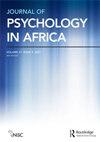Strengths use in the workplace: A meta-analysis
IF 0.8
4区 心理学
Q3 PSYCHOLOGY, MULTIDISCIPLINARY
引用次数: 0
Abstract
AbstractThis meta-analysis aimed to clarify the relationship between perceived organisational support and core self-evaluations and strengths use and task performance outcomes utilising a cross-temporal versus time-lagged research design. Drawing on the random effects model, this study combined 44 effect sizes from 23 independent studies (including 8 313 samples). The results indicated that strengths use is positively related to core self-evaluations (CSE) (ρ = 0.40) and perceived organisational support for strengths use (POSSU) (ρ = 0.47), task performance (ρ = 0.45), organisational citizenship behaviour (OCB) (ρ = 0.37), positive affect (ρ = 0.51), work engagement (ρ = 0.53), and self-efficacy (ρ = 0) organisational design (cross-temporal versus time-lagged) does not significantly moderate the relationships of interest. The findings imply that utilising the strengths of employees is essential for effective human resource management and employees’ career development.Keywords: strengths usemeta-analysisantecedentsoutcomesworkplacetask performance工作场所的优势使用:一项荟萃分析
摘要本荟萃分析旨在利用跨时间与时间滞后的研究设计,阐明感知组织支持与核心自我评价、优势使用和任务绩效结果之间的关系。本研究采用随机效应模型,综合了23项独立研究的44个效应量(包括8 313个样本)。结果表明,优势使用与核心自我评价(CSE) (ρ = 0.40)正相关,与优势使用的感知组织支持(POSSU) (ρ = 0.47)、任务绩效(ρ = 0.45)、组织公民行为(OCB) (ρ = 0.37)、积极情感(ρ = 0.51)、工作投入(ρ = 0.53)和自我效能感(ρ = 0)正相关。组织设计(跨时间与时滞)对兴趣关系无显著调节作用。研究结果表明,利用员工的优势对有效的人力资源管理和员工的职业发展至关重要。关键词:优势使用meta分析前因结果工作场所任务绩效
本文章由计算机程序翻译,如有差异,请以英文原文为准。
求助全文
约1分钟内获得全文
求助全文
来源期刊

Journal of Psychology in Africa
PSYCHOLOGY, MULTIDISCIPLINARY-
CiteScore
1.70
自引率
16.70%
发文量
62
期刊介绍:
Findings from psychological research in Africa and related regions needs a forum for better dissemination and utilisation in the context of development. Special emphasis is placed on the consideration of African, African-American, Asian, Caribbean, and Hispanic-Latino realities and problems. Contributions should attempt a synthesis of emic and etic methodologies and applications. The Journal of Psychology in Africa includes original articles, review articles, book reviews, commentaries, special issues, case analyses, reports and announcements.
 求助内容:
求助内容: 应助结果提醒方式:
应助结果提醒方式:


